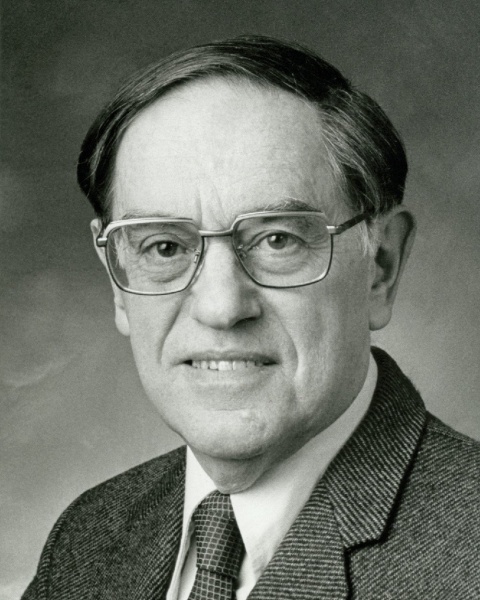Columbia College | Columbia University in the City of New York
Donald L. Keene ’42, GSAS’49, Japanese Literature Translator, University Professor Emeritus

Joe Pineiro
Donald L. Keene ’42, GSAS’49, a Japanese literature translator whose prodigious academic output helped define the study of the subject, died on February 24, 2019, in Tokyo. He was 96. Keene spent more than 50 years at the University, which opened the Donald Keene Center of Japanese Culture in 1986.
Born on June 18, 1922, in Brooklyn, N.Y., Keene was a child prodigy. Entering the College on scholarship in 1938 at 16, he studied the classics of Western literature and honed his talent for languages on French and Greek. In 1940, Keene encountered the literature that would define his life: a 49-cent translation of Murasaki Shikibu’s The Tale of Genji, an 11th-century story of courtly love affairs and other intrigues, often described as the world’s first novel. The translation “was magical, evoking a beautiful and distant world,” he wrote in a 2008 memoir of his relationship with Japan. For Keene, who described himself as an “intense pacifist,” Murasaki’s romance was “a refuge from all I hated in the world around me.” Shortly after Pearl Harbor, however, Keene enlisted in the Navy, where he volunteered to study Japanese and traveled to California to enter the Navy Japanese Language School.
Keene’s first work as a translator came in Hawaii, where he worked on military reports captured from Japanese units, and his first visit to the country began on a beach in Okinawa on April 1, 1945, one of the bloodiest battles of the Pacific campaign. After the war, Keene returned to Columbia, earning an M.A. and Ph.D. from GSAS in 1947 and 1949, respectively. Keene spent a year as a visiting student at Harvard and five years as a student and lecturer at Cambridge.
In 1953, Keene received a Ford Foundation fellowship to study at Kyoto University. He returned to New York in 1955 to teach at Columbia, where he played a key role in the development of the Department of East Asian Languages and Cultures into a national standard bearer and taught classes on Japanese literature and cultural history for decades. He was named the Shinchō Professor of Japanese Literature in 1981 and became a University Professor in 1989. Keene retired in 1992 and was named University Professor Emeritus, but taught a graduate seminar every spring for the following two decades; his final class at Columbia, in spring 2011, was widely covered by the Japanese media and commemorated by a public symposium. Columbia awarded him a Litt.D. (Hon.) in 1997.
Keene had translated many of the most important works of Japanese literature into lively and eminently readable English, and his scholarship quickly became the foundation of the study of Japanese literature and culture in the English-speaking world. He published around 25 books in English and many more in Japanese and other languages, ranging from academic studies to personal reminisces. In 1985, Keene became the first non-Japanese to receive the Yomiuri Prize for Literature for literary criticism for his historical survey of Japanese diaries.
Keene decided to become a Japanese citizen in the aftermath of the 2011 Fukushima nuclear disaster that followed a deadly earthquake and tsunami. The next year, he moved to Japan and adopted Uehara Seiki, a traditional shamisen performer and bunraku puppet theater narrator, as his son and heir. Now known as Seiki Keene, he is Keene’s sole survivor.
The Keene Center has established a scholarship fund in Keene’s honor. Memorial contributions may be sent to the Donald Keene Center of Japanese Culture, Columbia University, 1140 Amsterdam Ave., 507 Kent Hall, MC 3920, New York, NY 10027, or given online. The center will host a memorial service at Columbia on Friday, September 27. Read more about Keene on the center’s website.
— Lisa Palladino
Issue Contents
Published three times a year by Columbia College for alumni, students, faculty, parents and friends.
Columbia Alumni Center
622 W. 113th St., MC 4530, 6th Fl.
New York, NY 10025
212-851-7852
cct@columbia.edu
Columbia Alumni Center
622 W. 113th St., MC 4530, 4th Fl.
New York, NY 10025
212-851-7488
ccalumni@columbia.edu

